 |
||||||||||
Updated: September 21, 2024
Veltuzumab
Fully Humanized Competition for Rituxan
Another Anti-CD20 Monoclonal in Clinical Trials
 Immunomedics is recruiting CLL and NHL patients for a Phase I/II clinical trial of their new anti-CD20 monoclonal at multiple centers across the U.S. Read about how this Mab compares to the gold standard Rituxan in Veltuzumab: Another Anti-CD20 Monoclonal in Clinical Trials.
Immunomedics is recruiting CLL and NHL patients for a Phase I/II clinical trial of their new anti-CD20 monoclonal at multiple centers across the U.S. Read about how this Mab compares to the gold standard Rituxan in Veltuzumab: Another Anti-CD20 Monoclonal in Clinical Trials.
NK-cell Therapy: Better than a transplant?
GVL without GVHD?
Having Your Cake and Eating It Too
 New research findings point to NK (Natural Killer) cells as the most potent cell line capable of GVL (graft-versus-leukemia), but these cells do not seem to do as much GVHD (Graft-Versus-Host-Disease). A brand new clinical trial launched at the University of Minnesota uses haplo NK cells in an attempt to get the much desired GVL, while steering clear of the dreaded GVHD. This is an early stage trial but one with sufficient potential that CLL Topics has decided to sponsor it and fund part of its cost. Most of our patients will have access to haplo donors, since children are by definition haplo match to their parents. For late stage patients unsure about submitting to the risks of a stem cell transplant, or who do not have suitable adult donors, this NK cell clinical trial may be a good fit. Our review NK-cell Therapy: Better than a transplant? describes the background, rationale and advantages of this approach, as well as providing inclusion criteria and contact information.
(7/28/2008)
New research findings point to NK (Natural Killer) cells as the most potent cell line capable of GVL (graft-versus-leukemia), but these cells do not seem to do as much GVHD (Graft-Versus-Host-Disease). A brand new clinical trial launched at the University of Minnesota uses haplo NK cells in an attempt to get the much desired GVL, while steering clear of the dreaded GVHD. This is an early stage trial but one with sufficient potential that CLL Topics has decided to sponsor it and fund part of its cost. Most of our patients will have access to haplo donors, since children are by definition haplo match to their parents. For late stage patients unsure about submitting to the risks of a stem cell transplant, or who do not have suitable adult donors, this NK cell clinical trial may be a good fit. Our review NK-cell Therapy: Better than a transplant? describes the background, rationale and advantages of this approach, as well as providing inclusion criteria and contact information.
(7/28/2008)
MUD Transplants at the NCI
NIH Will Pick Up the Tab
Brand New Protocol Makes Its Debut
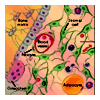 The NCI has just announced a new mini-allo MUD stem cell transplant clinical trial
designed to evaluate the relative efficacy of two different methods of handling GVHD
(graft versus host disease). Patients should take additional – and particular
– notice of the fact that the NCI will pay for the entire protocol – from
cytoreduction to transplant and post-transplant monitoring. Patients with a well
matched unrelated donor (MUD) but without adequate insurance will find this trial
may open a door that is otherwise closed. To find out more please read
MUD Transplants at the NCI. (1/18/08)
The NCI has just announced a new mini-allo MUD stem cell transplant clinical trial
designed to evaluate the relative efficacy of two different methods of handling GVHD
(graft versus host disease). Patients should take additional – and particular
– notice of the fact that the NCI will pay for the entire protocol – from
cytoreduction to transplant and post-transplant monitoring. Patients with a well
matched unrelated donor (MUD) but without adequate insurance will find this trial
may open a door that is otherwise closed. To find out more please read
MUD Transplants at the NCI. (1/18/08)
Immunotoxins
Monoclonal Antibodies with Enhanced Firepower
CAT8015 – A Trojan Horse
 Investigators at the NCI and NIH are hard at work on another agent that promises to combine sharp
targeting and a powerful knockout punch to destroy CLL cells: an immunotoxin called CAT-8015.
A new clinical trial with this agent has been announced and is currently recruiting. In our
article, CAT8015 – A Trojan Horse,
we review the background science and discuss the pros and cons of this approach. (4/12/07)
Investigators at the NCI and NIH are hard at work on another agent that promises to combine sharp
targeting and a powerful knockout punch to destroy CLL cells: an immunotoxin called CAT-8015.
A new clinical trial with this agent has been announced and is currently recruiting. In our
article, CAT8015 – A Trojan Horse,
we review the background science and discuss the pros and cons of this approach. (4/12/07)
Follicular Lymphoma
Phase III Clinical Trial of Single-Agent HuMax-CD20
Seeking Approval on Different Fronts
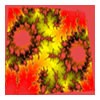 In mid-2006 Genmab announced the launch of a second pivotal phase III clinical trial of HuMax-CD20 as a single agent: this time for treating follicular lymphoma patients who have failed chemoimmunotherapy combinations incorporating Rituxan or Rituxan given as maintenance therapy. While the trial is interesting in itself as expanding the options for follicular lymphoma patients, it also serves as another clinical platform to demonstrate the theoretically superior efficacy of HuMax-CD20 when compared to Rituxan. The results of this clinical trial should be of interest to CLL patients since approval for the treatment of follicular lymphoma would put HuMax-CD20 in an FDA approval status similar to that of Rituxan. Details in: HuMax-CD20 Monotherapy in Refractory Follicular Lymphoma. (1/21/07)
In mid-2006 Genmab announced the launch of a second pivotal phase III clinical trial of HuMax-CD20 as a single agent: this time for treating follicular lymphoma patients who have failed chemoimmunotherapy combinations incorporating Rituxan or Rituxan given as maintenance therapy. While the trial is interesting in itself as expanding the options for follicular lymphoma patients, it also serves as another clinical platform to demonstrate the theoretically superior efficacy of HuMax-CD20 when compared to Rituxan. The results of this clinical trial should be of interest to CLL patients since approval for the treatment of follicular lymphoma would put HuMax-CD20 in an FDA approval status similar to that of Rituxan. Details in: HuMax-CD20 Monotherapy in Refractory Follicular Lymphoma. (1/21/07)
HuMax-CD20 plus Fludarabine plus Cyclophosphamide
Genmab Announcement.
Phase II Trial of New Chemo-Immunotherapy Combination
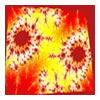 Genmab has recently announced a new chemoimmunotherapy combination clinical trial involving
its anti-CD20 monoclonal antibody, HuMax-CD20 (generic name
ofatumumab). This is a phase II dose comparison trial. The Genmab
protocol combines HuMax-CD20 with fludarabine and cyclophosphamide over a 6 month treatment
cycle. The trial is currently being offered at four recruitment centers in the United States.
There is reason to hope that HuMax-CD20 will be more effective than Rituxan both as a single
agent as well as in chemoimmunotherapy combinations such as this. You can find our discussion
of this announcement at:
HFC Announcement. (1/9/07)
Genmab has recently announced a new chemoimmunotherapy combination clinical trial involving
its anti-CD20 monoclonal antibody, HuMax-CD20 (generic name
ofatumumab). This is a phase II dose comparison trial. The Genmab
protocol combines HuMax-CD20 with fludarabine and cyclophosphamide over a 6 month treatment
cycle. The trial is currently being offered at four recruitment centers in the United States.
There is reason to hope that HuMax-CD20 will be more effective than Rituxan both as a single
agent as well as in chemoimmunotherapy combinations such as this. You can find our discussion
of this announcement at:
HFC Announcement. (1/9/07)
HuMax-CD20: Risks and Rewards
Belt, Suspenders and Cummerbund
Get to Know Ofatumumab
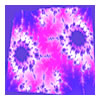 HuMax-CD20 derives part of its improved efficacy from its capacity to work with a patient's
complement system to destroy B-cells. In
HuMax-CD20 Risks and Rewards, we examine the potential risks of complement depletion that may accompany
intensive treatment with this monoclonal antibody — and suggest a possible precautionary measure for
those who are taking part in the Phase III trial of this agent for fludarabine- and Campath-refractory patients. (8/12/06)
HuMax-CD20 derives part of its improved efficacy from its capacity to work with a patient's
complement system to destroy B-cells. In
HuMax-CD20 Risks and Rewards, we examine the potential risks of complement depletion that may accompany
intensive treatment with this monoclonal antibody — and suggest a possible precautionary measure for
those who are taking part in the Phase III trial of this agent for fludarabine- and Campath-refractory patients. (8/12/06)
HuMax-CD20
A Smarter Monoclonal on Trial
What Makes HuMax-CD20 Different from Rituxan?
 In this article we take a closer look at the new agent starring in Genmab's recently announced Phase III
clinical trial for fludarabine and Campath refractory CLL patients. This well-designed trial keys in on
HuMax-CD20's strengths which we hope will provide significantly better results than singe-agent Rituxan,
especially in this difficult patient cohort. To learn more about this pivotal trial and to understand
how this important new monoclonal antibody works, read
A Smarter Monoclonal on Trial. (7/20/06)
In this article we take a closer look at the new agent starring in Genmab's recently announced Phase III
clinical trial for fludarabine and Campath refractory CLL patients. This well-designed trial keys in on
HuMax-CD20's strengths which we hope will provide significantly better results than singe-agent Rituxan,
especially in this difficult patient cohort. To learn more about this pivotal trial and to understand
how this important new monoclonal antibody works, read
A Smarter Monoclonal on Trial. (7/20/06)
Genmab in the News
HuMax-CD20 in Action
Harvey is Back!
 We have an opportunity to see HuMax-CD20 in action when Harvey and Serena pack their bags and travel
to England in pursuit of therapy with this new agent under the guidance of Professor Terry Hamblin. The story unfolds in
Genmab & Harvey in the News. (5/24/06)
We have an opportunity to see HuMax-CD20 in action when Harvey and Serena pack their bags and travel
to England in pursuit of therapy with this new agent under the guidance of Professor Terry Hamblin. The story unfolds in
Genmab & Harvey in the News. (5/24/06)
Sponsored Clinical Trial
Low Hanging Fruit
Improving Routine Immunizations
 Sometimes, when luck is running our way and all the stars are in their correct positions in the heavens,
everything comes together just so and we have an opportunity to do ourselves a favor as a community.
In our new article,
Improving Immunizations, we present a clinical trial to test a method that may boost
the efficacy of routine immunizations for CLL patients. We are happy to report that Prof. Terry Hamblin
is now working on making this trial a reality. (5/13/06)
Sometimes, when luck is running our way and all the stars are in their correct positions in the heavens,
everything comes together just so and we have an opportunity to do ourselves a favor as a community.
In our new article,
Improving Immunizations, we present a clinical trial to test a method that may boost
the efficacy of routine immunizations for CLL patients. We are happy to report that Prof. Terry Hamblin
is now working on making this trial a reality. (5/13/06)
Chemotherapy
A Direct Comparison of F+C vs F
Is More Necessarily Better?
 The latest issue of Blood carries an article from the German CLL
Study Group comparing single-agent fludarabine against a
combination of fludarabine plus cyclophosphamide. This is a
well-structured, rigorous study and the study group comes to
some surprising conclusions. Read
F+C vs F
for our analysis of the
study and comments from an editorial in Blood by Dr. Neil Kay. (3/18/06)
The latest issue of Blood carries an article from the German CLL
Study Group comparing single-agent fludarabine against a
combination of fludarabine plus cyclophosphamide. This is a
well-structured, rigorous study and the study group comes to
some surprising conclusions. Read
F+C vs F
for our analysis of the
study and comments from an editorial in Blood by Dr. Neil Kay. (3/18/06)
Vaccines
A Vaccine Trial for CLL Patients
Finally, It's Our Turn ...
 Genitope Corp. has announced a clinical trial of their MyVax proprietary
vaccine technology for untreated, early stage CLL patients. We
examine this promising technology and the structure of the
Genitope clinical trial in our new article,
A Vaccine Trial for CLL Patients. (3/4/06)
Genitope Corp. has announced a clinical trial of their MyVax proprietary
vaccine technology for untreated, early stage CLL patients. We
examine this promising technology and the structure of the
Genitope clinical trial in our new article,
A Vaccine Trial for CLL Patients. (3/4/06)
Clinical Trial Updates
The Search for Consistency in Reporting Results
Comparing Apples to Kumquats and One Small Victory
 We revisit two clinical trials discussed in past articles - FCR and
PCR. Comparing the results of these two trials is not easy but we nevertheless
make a brave attempt. We also discuss new trials in the offing
and report a welcome change in the design of the FCR + M
clinical trial. Sometimes it helps to tilt with windmills! Read
all about these things in Clinical Trial Updates. (1/17/06)
We revisit two clinical trials discussed in past articles - FCR and
PCR. Comparing the results of these two trials is not easy but we nevertheless
make a brave attempt. We also discuss new trials in the offing
and report a welcome change in the design of the FCR + M
clinical trial. Sometimes it helps to tilt with windmills! Read
all about these things in Clinical Trial Updates. (1/17/06)
FCR 'Lite'
The Search for Efficacy with Lower Toxicity
New Clinical Trial Seeks the Goldilocks Solution
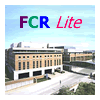 A new chemoimmunotherapy combination employing a higher dosage of Rituxan with
reduced dosages of fludarabine and cyclophosphamide, is
being tested in a clinical trial at the University of Pittsburgh
Cancer Institute. The investigators would like to achieve high
response rates with lower toxicity compared to FCR "Classic"
pioneered at M. D. Anderson Cancer Center. We review the
protocol and comment on the clinical trial design in our article
on FCR Lite. We also
interviewed Dr. Kenneth Foon, the principal investigator for
this clinical trial at UPMC. (1/12/06)
A new chemoimmunotherapy combination employing a higher dosage of Rituxan with
reduced dosages of fludarabine and cyclophosphamide, is
being tested in a clinical trial at the University of Pittsburgh
Cancer Institute. The investigators would like to achieve high
response rates with lower toxicity compared to FCR "Classic"
pioneered at M. D. Anderson Cancer Center. We review the
protocol and comment on the clinical trial design in our article
on FCR Lite. We also
interviewed Dr. Kenneth Foon, the principal investigator for
this clinical trial at UPMC. (1/12/06)
HuMax Clinical Trial
Early Results from GenMab's Anti-CD20 Monoclonal Antibody
The Half-Full Glass
 We have high hopes for the new generation of monoclonal antibodies
that are under development and have discussed new trials under
way to test these agents in the clinic. Early results form one
such trial, involving GenMab's HuMax, were highlighted at the
2005 ASH conference in Atlanta. We offer our analysis of the
published results in
Results from GenMab's HuMax-CD20 Clinical Trial. (1/3/06)
We have high hopes for the new generation of monoclonal antibodies
that are under development and have discussed new trials under
way to test these agents in the clinic. Early results form one
such trial, involving GenMab's HuMax, were highlighted at the
2005 ASH conference in Atlanta. We offer our analysis of the
published results in
Results from GenMab's HuMax-CD20 Clinical Trial. (1/3/06)
Targeting Bcl-2
Anti-death Protein Protects Cancer Cells
We Review Clinical Trials of Three Different Drugs
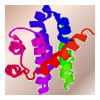 Clinical trials are currently under way testing three different drugs to
suppress or attack a family of proteins that confers longevity
to CLL cells. We review the science behind this approach — and
give you our take on the drugs and the clinical trials — in
Targeting Bcl-2. (11/2/05)
Clinical trials are currently under way testing three different drugs to
suppress or attack a family of proteins that confers longevity
to CLL cells. We review the science behind this approach — and
give you our take on the drugs and the clinical trials — in
Targeting Bcl-2. (11/2/05)
Clinical Trials
A Patient Sponsored Clinical Trial
Project Alpha Kickoff
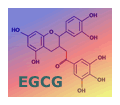 It has taken longer than we thought it would, but we are
pleased to announce Project Alpha is finally ready to start
recruiting patients. It represents a first of its kind
collaboration between patients and the research community.
Your hard earned money went into making this "EGCG trial" a
reality. You can read all the details of this newly
announced clinical trial at Mayo Clinic, Rochester MN, in
our new article,
Project Alpha Kickoff. (8/22/05)
It has taken longer than we thought it would, but we are
pleased to announce Project Alpha is finally ready to start
recruiting patients. It represents a first of its kind
collaboration between patients and the research community.
Your hard earned money went into making this "EGCG trial" a
reality. You can read all the details of this newly
announced clinical trial at Mayo Clinic, Rochester MN, in
our new article,
Project Alpha Kickoff. (8/22/05)
Clinical Trials
The Importance of Screening
FMC plus R: Brit. Version
 Drawing from the information sheet provided to patients in the UK FCM/FCM-R CLL trial,
we make some comparisons with the previously discussed M. D. Anderson clinical trial
(Mitoxantrone to Turbocharge FCR Combo?).
The issue of pre-screening participants for cardiac conditions is being addressed
differently in the U. K. trial as you will see in
FMC plus R - Brit. Version. (8/18/05)
Drawing from the information sheet provided to patients in the UK FCM/FCM-R CLL trial,
we make some comparisons with the previously discussed M. D. Anderson clinical trial
(Mitoxantrone to Turbocharge FCR Combo?).
The issue of pre-screening participants for cardiac conditions is being addressed
differently in the U. K. trial as you will see in
FMC plus R - Brit. Version. (8/18/05)
Clinical Trials
MD Anderson Responds
More on Mitoxantrone plus FCR
 We are pleased to report that Dr. Stefan Faderl, the principal investigator
at M. D. Anderson Cancer Center for the FCR+M and Neulasta clinical trial,
has responded to our letter and the review of the clinical trial we published
yesterday (see story introduction below:
Mitoxantrone to Turbocharge FCR Combo?).
We offer our recommendations regarding this trial and a commentary by
Dr. Terry Hamblin in
More on Mitoxantrone plus FCR. (8/12/05)
We are pleased to report that Dr. Stefan Faderl, the principal investigator
at M. D. Anderson Cancer Center for the FCR+M and Neulasta clinical trial,
has responded to our letter and the review of the clinical trial we published
yesterday (see story introduction below:
Mitoxantrone to Turbocharge FCR Combo?).
We offer our recommendations regarding this trial and a commentary by
Dr. Terry Hamblin in
More on Mitoxantrone plus FCR. (8/12/05)
Clinical Trials
Mitoxantrone Is Added to FRC Regime
Kick It Up Another Notch?
 We review a new clinical trial currently recruiting patients at
M. D. Anderson Cancer Center. Our article,
Mitoxantrone to Turbocharge FCR Combo? is required reading for those considering
enlisting in the Anderson FCR+M clinical trial - or for those simply interested
in evaluating the risks and benefits of enrolling in any CLL clinical trial. (8/11/05)
We review a new clinical trial currently recruiting patients at
M. D. Anderson Cancer Center. Our article,
Mitoxantrone to Turbocharge FCR Combo? is required reading for those considering
enlisting in the Anderson FCR+M clinical trial - or for those simply interested
in evaluating the risks and benefits of enrolling in any CLL clinical trial. (8/11/05)
Chemotherapy Trials
Hsp 90 and Its Inhibition by 17-AAG
An Important New Trial Has Been Announced
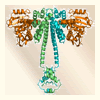 17-AAG may turn out to be an important therapeutic drug for CLL.
It has an interesting mechanism of action and should in theory work
well in poor prognostic cases. An important new phase I trial of
17-AAG has been announced and is recruiting patients at OSU, soon to
be followed by Dana Farber. You can read all about it in our article
17-AAG - An Important New Trial Has Been Announced. (6/23/05)
17-AAG may turn out to be an important therapeutic drug for CLL.
It has an interesting mechanism of action and should in theory work
well in poor prognostic cases. An important new phase I trial of
17-AAG has been announced and is recruiting patients at OSU, soon to
be followed by Dana Farber. You can read all about it in our article
17-AAG - An Important New Trial Has Been Announced. (6/23/05)
New Clinical Trial at Mayo
Protocol for Previously Untreated Patients
Short Duration Campath plus Rituxan
 A new protocol combining short duration subcutaneous Campath
with standard dose Rituxan has been launched at the Mayo Clinic,
Rochester, MN. It targets previously untreated Rai Stage 0-II
patients. Read our review of the protocol and the relevant detail
and background in
Clinical Trial to Test Rituxan plus Short Duration Campath. (3/12/05)
A new protocol combining short duration subcutaneous Campath
with standard dose Rituxan has been launched at the Mayo Clinic,
Rochester, MN. It targets previously untreated Rai Stage 0-II
patients. Read our review of the protocol and the relevant detail
and background in
Clinical Trial to Test Rituxan plus Short Duration Campath. (3/12/05)
Chemoimmunotherapy
Heavy Duty Combination: Fludarabine plus Campath
FluCam-106 Trial Sponsored by Berlex Laboratories
 We have heard a great deal about chemoimmunotherapy combinations involving Rituxan — and even with the experimental newcomer, HuMax-CD20. But a trial combining the agents fludarabine and Campath, each of which has each been approved for single-agent use in CLL, has not yet been successfully conducted. FluCam-106 is our review of Berlex Labs' FluCam-106 clinical trial which was closed in October 2024 because of an inadequate recruitment rate. Our review might help you to understand potential value of this powerful combination and the difficulty of actually getting a clinical trial done with this protocol. A different phase III trial with these two agents is now being conducted by Genzyme Corporation. It may conclude more successfully — and produce a publication for us to review. (6/29/04)
We have heard a great deal about chemoimmunotherapy combinations involving Rituxan — and even with the experimental newcomer, HuMax-CD20. But a trial combining the agents fludarabine and Campath, each of which has each been approved for single-agent use in CLL, has not yet been successfully conducted. FluCam-106 is our review of Berlex Labs' FluCam-106 clinical trial which was closed in October 2024 because of an inadequate recruitment rate. Our review might help you to understand potential value of this powerful combination and the difficulty of actually getting a clinical trial done with this protocol. A different phase III trial with these two agents is now being conducted by Genzyme Corporation. It may conclude more successfully — and produce a publication for us to review. (6/29/04)
Immunotoxin
Combination of Smart Targeting and Lethal Payload
New Phase II Clinical Trial of LMB-2
 An antibody combining a cancer cell targeting mechanism (CD25) with a toxin is getting a tryout in CLL treatment. LMB-2 is a molecule under patent held by the NCI which shows promise in a number of hematological cancers. A Phase II trial at the NCI's Warren Grant Magnuson Clinical Center at Bethsda, MD is designed to demonstrate its efficacy as a CLL therapy. For details, read our review of this technology and our evaluation of this trial in our article titled LMB-2. (4/13/04)
An antibody combining a cancer cell targeting mechanism (CD25) with a toxin is getting a tryout in CLL treatment. LMB-2 is a molecule under patent held by the NCI which shows promise in a number of hematological cancers. A Phase II trial at the NCI's Warren Grant Magnuson Clinical Center at Bethsda, MD is designed to demonstrate its efficacy as a CLL therapy. For details, read our review of this technology and our evaluation of this trial in our article titled LMB-2. (4/13/04)
Immunotherapy
Phase I/II Clinical Trial from Point Therapeutics
PT-100 plus Rituxan
 A biotech company called Point Therapeutics based in Boston, MA has launched a phase I/II clinical trial
combining its small molecule immune modulating drug, PT-100, with Rituxan.
In experiments with animals, Rituxan showed increased activity against Non-hodgkins Lymphoma tumors when
combined with Rituxan. If this synergy is also demonstrated with human subjects, the combination could
offer a valuable therapeutic option. For details, see
PT-100 plus Rituxan Clinical Trial. (7/27/03)
A biotech company called Point Therapeutics based in Boston, MA has launched a phase I/II clinical trial
combining its small molecule immune modulating drug, PT-100, with Rituxan.
In experiments with animals, Rituxan showed increased activity against Non-hodgkins Lymphoma tumors when
combined with Rituxan. If this synergy is also demonstrated with human subjects, the combination could
offer a valuable therapeutic option. For details, see
PT-100 plus Rituxan Clinical Trial. (7/27/03)
 Enter Keywords: |
———
Disclaimer: The content of this website is intended for information only and is NOT meant to be medical advice. Please be sure to consult and follow the advice of your doctors on all medical matters.
Copyright Notice:
Copyright © 2024-2007 CLL Topics, Inc. All Rights Reserved.
All materials contained on this site are protected by United States copyright law and may not be reproduced, distributed, transmitted, displayed, published or broadcast without the prior written permission of CLL Topics, Inc. You may not alter or remove any trademark, copyright or other notice from copies of the content.
However, you may download and print material from CLLTopics.org exclusively for your personal, noncommercial use.
———
